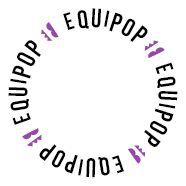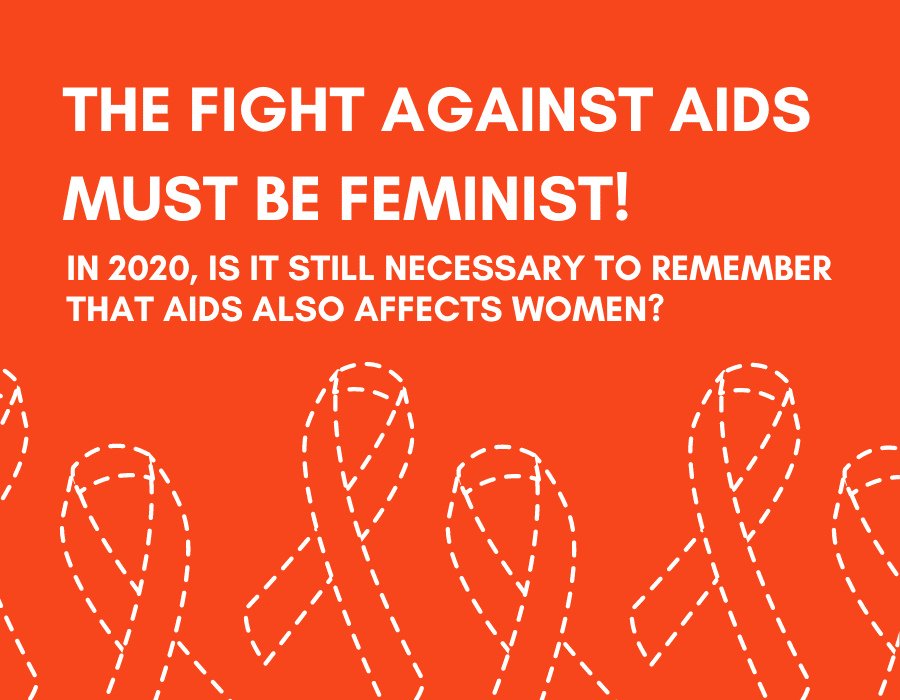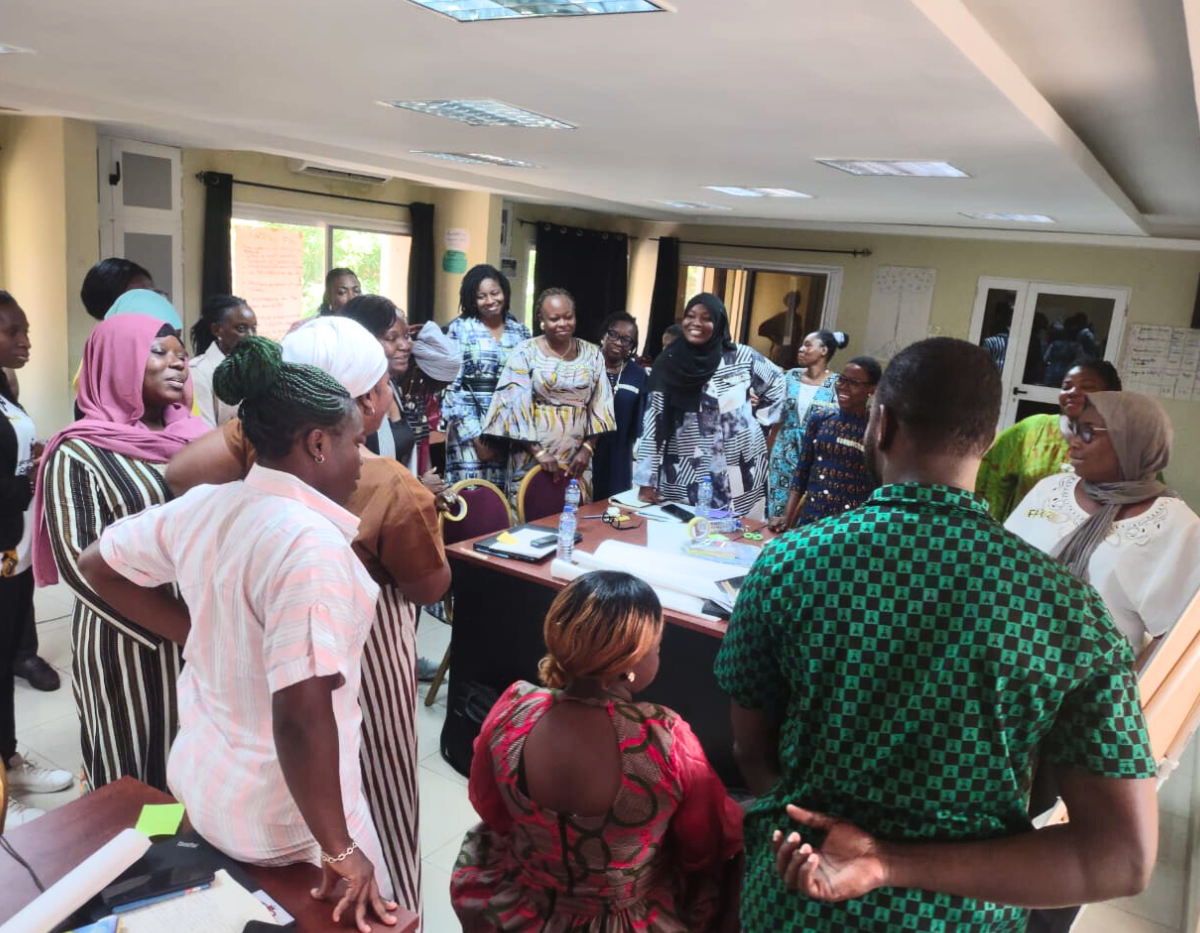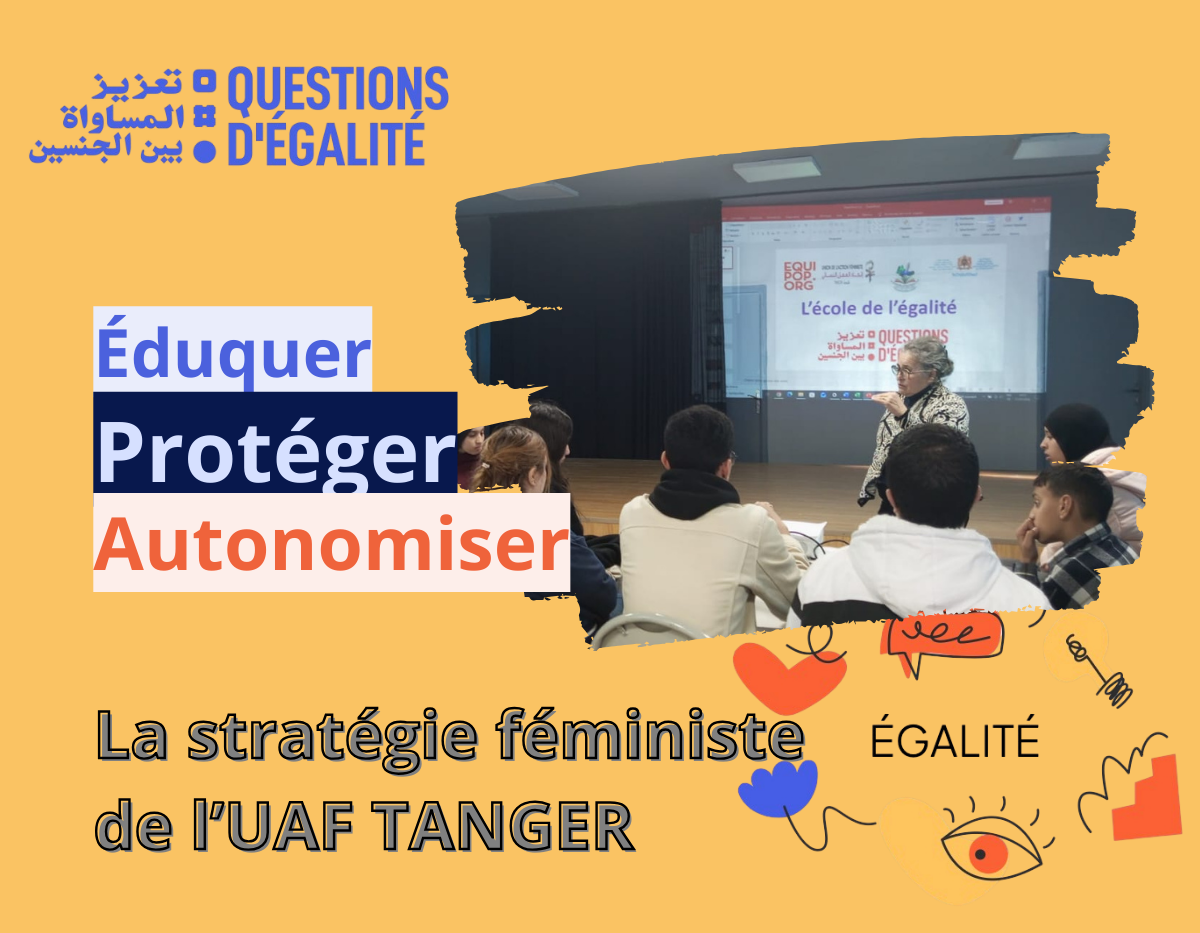Facing the agreed-upon discourses and political resistance, feminist activists are still struggling to make women’s voices and solutions in the fight against HIV/AIDS heard. Today, on the World HIV/AIDS Day, what are we waiting for to listen to them?
by Aurélie Gal-Régniez, Chief Executive, Equipop
and Lucie Daniel, Advocacy Expert, Equipop
In 2020, is it still necessary to remember that AIDS also affects women? Globally, girls and women make up more than half of the 38 million people living with HIV, and in some regions it is more specifically teenage girls who are affected. These situations are partly linked to patriarchal power relations, deeply rooted in our societies, which are also and primarily exercised in the sphere of sexuality. In heterosexual relationships, women, especially some of them who are discriminated against (due to economic status, age, disability, etc.), are often unable to negotiate safe sex. A significant number of them are also victims of rape. Furthermore, women also play a crucial role in caring for the sick, providing free palliation for the deficiencies of the social and health systems in many countries.
Yet the place of women in the fight against HIV/AIDS has long been considered solely from the angle of prevention of mother-to-child transmission. Although immense progress has been made since the 2000s in this specific area, this covers only part of the question. Since women are not just mothers, a broader gender-based approach is needed. International institutions have become aware of this, but responses have been slow.
In 1995, at the 4th World Conference on Women, the UN States committed themselves to take into account the needs of women and to ensure their participation in policies and programs to fight AIDS. But it was only in 2017, fifteen years after its creation, that the Global Fund to Fight AIDS, Tuberculosis and Malaria made gender equality one of the pillars of its strategy. Why is progress so slow?
Lack of political will and insufficient operational responses
The deadlocks are above all political and institutional. Taking gender into account in the fight against HIV/AIDS requires states to establish proactive policies on comprehensive sexuality education, to recognize the sexual rights of all women and to make the fight against gender-based and sexual violence a priority. However, we know that on these issues, we often witness backtracking and at best politics of small steps. Moreover, the dominant culture in national programs and international organizations remains patriarchal and gender inequality issues and the participation of women individually or collectively are marginalized.
The second, directly related barrier is operational. While, for example, the Global Fund has relevant strategic frameworks and tools, we are still a long way from concrete implementation. Gender-based approaches are often diluted in technical jargon, subject to an inadequate results culture, and sidelined in budget trade-offs. There is a huge gap between institutional discourse and the analyses carried out by women’s associations, which do not see the effects, even at the height of the Covid-19 crisis.
Together with feminist associations, to drive a turning point in the fight against HIV/AIDS
Facing these findings, how can we get out of a collective inertia? First of all, it is necessary to support, politically and financially, the feminist associations that have been fighting for years to act on the causes of women’s vulnerability to the pandemic, to make visible the most marginalized women and to promote their expertise. They must be systematically involved in the development of public policies to fight HIV/AIDS and in decision-making.
Secondly, it is a matter of making gender equality the guiding principle of any public policy to combat HIV/AIDS. This implies proactive and binding policies that mobilize clear means to combat structural inequalities between women and men and strengthen women’s individual and collective power.
Finally, it is important to re-politicize the gender approach in the fight against HIV/AIDS, i.e. to pursue a resolutely feminist agenda, particularly within international organizations. Consistent with its « feminist diplomacy, » France could play a key role in building a common front by allying itself with states such as the Scandinavian countries and Canada. The Generation Equality Forum that will take place in Paris in 2021 is an opportunity to finally bring this subject to the forefront.
The fight against HIV/AIDS has been able to leave its mark on the collective consciousness through its audacity and its ability to shake up dogmatic approaches. Its next turning point must be feminist.





